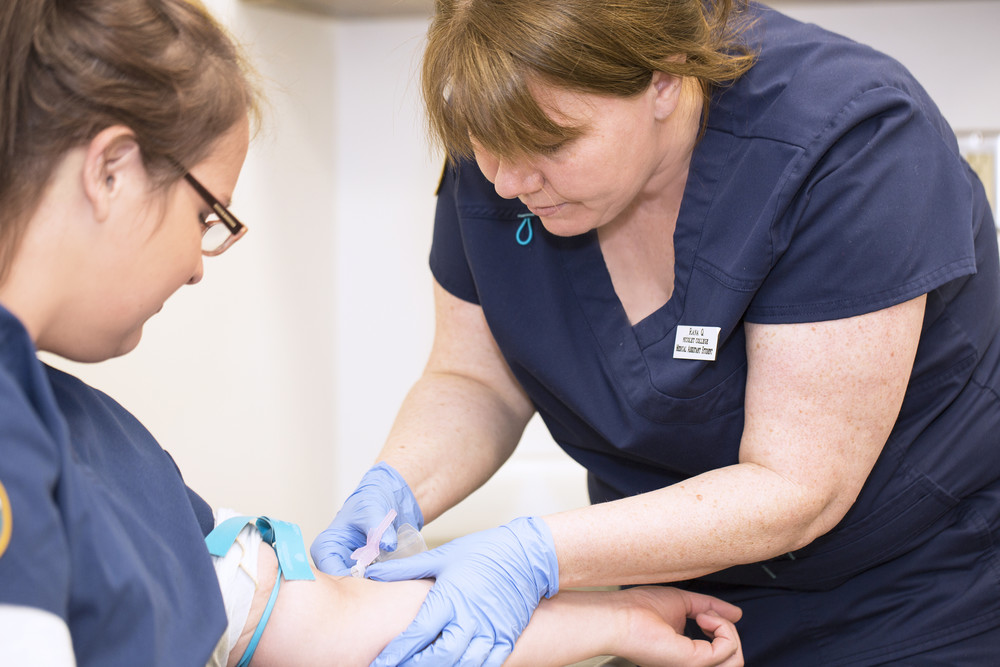Expert Northeast Medical Institute Phlebotomy Classes Stamford: Get Qualified
Expert Northeast Medical Institute Phlebotomy Classes Stamford: Get Qualified
Blog Article
Important Factors to Consider When Picking one of the most Suitable Medical School Educational Program for You
Choosing the most suitable clinical college curriculum is a critical decision that can considerably influence your academic trip and future profession course. As striving medical experts, the choice of educational program should align with your individual understanding design and career desires.
Personal Understanding Style

Medical institutions that use varied mentor approaches and resources can suit different finding out designs, fostering a vibrant and comprehensive instructional environment. Eventually, recognizing personal knowing choices encourages trainees to make informed choices concerning their clinical education and learning, setting a strong structure for their future careers in health care.
Career Purposes Placement

Moreover, straightening job objectives with the medical institution educational program can additionally enhance inspiration and engagement throughout the educational journey. They are a lot more likely to remain dedicated and concentrated to their studies when trainees see the direct importance of their coursework to their future job. Therefore, when choosing a clinical institution curriculum, it is important to meticulously take into consideration how well it aligns with one's occupation objectives to guarantee an effective and fulfilling professional course.
Mentor Methodologies
Taking into consideration the alignment of occupation objectives with the selected clinical college educational program, an evaluation of the training techniques employed comes to be essential in shaping the learning experience. The efficiency of a medical college educational program greatly depends on the training methodologies used by the organization. Different mentor approaches, such as lectures, tiny seminar, problem-based understanding, simulation-based training, and hands-on professional experience, can substantially impact just how well pupils maintain and grasp info.
Lectures are a traditional however still commonly used method for delivering material to a big group of students effectively. Small seminar foster partnership, critical thinking, and interaction skills amongst students. Problem-based understanding motivates active engagement, self-directed knowing, and analytic abilities. Simulation-based training enables pupils to practice medical abilities in a regulated environment before communicating with real people. Hands-on clinical experience uses a firsthand understanding of patient care and clinical methods.
When selecting a medical institution curriculum, aspiring pupils must think about the teaching approaches utilized to make sure that their understanding choices and toughness align with the educational method of the establishment.
Curriculum Adaptability
When examining medical school programs, assessing the level of curriculum flexibility is vital for possible trainees looking for a customized educational experience. Curriculum adaptability describes the degree to which pupils can customize their learning courses within the clinical college curriculum. An educational program that uses flexibility allows pupils to pursue their rate of interests, emphasis on locations where they need a lot more support, and involve in finding out experiences that straighten with their profession goals.

Potential medical pupils must consider just how a link medical school's curriculum versatility aligns with their discovering preferences, occupation desires, and individual goals. By selecting a program that uses the appropriate balance of structure and versatility, students can optimize their educational experience and prepare themselves for successful professions in medicine.
Medical Exposure Opportunities
Checking out the functional application of medical knowledge, scientific direct exposure possibilities play a vital role in forming a detailed clinical education. These a knockout post possibilities provide students with invaluable hands-on experience in actual health care setups, permitting them to bridge the space between theory and practice. When considering clinical school curricula, the high quality and quantity of medical exposure must be carefully examined.
Efficient medical direct exposure needs to offer a varied series of experiences across various specializeds, making certain that trainees are exposed to different medical scenarios and patient demographics. Direct exposure to outpatient centers, inpatient wards, surgical theaters, and emergency situation departments can assist trainees establish a well-rounded understanding of different elements of health care delivery. Additionally, possibilities for community-based care and communications with underserved populaces can foster a deeper recognition for the social factors of health and wellness.
Furthermore, the presence of supportive professors and mentors throughout these scientific experiences can dramatically boost the discovering process. Professors guidance and constructive feedback can assist students review their professional encounters, determine areas for improvement, and boost their clinical abilities and decision-making capabilities (Northeast Medical Institute CNA Classes Near me Stamford). Generally, robust medical direct exposure opportunities are vital for preparing future doctors to deliver high quality person treatment effectively
Conclusion
In final thought, when picking a clinical institution curriculum, it is necessary to consider your individual discovering design, alignment with occupation purposes, teaching techniques, educational program flexibility, and clinical direct exposure chances. These elements play an important function in figuring out the most ideal program for your educational and professional growth. Ensure to thoroughly evaluate each facet to make a notified choice that will certainly best support your development in the medical area.
Understanding one's individual learning design is essential when selecting a clinical institution curriculum. By recognizing one's discovering style early on, striving medical students can purposefully select a curriculum that caters to their staminas, eventually boosting their knowing experience and academic success.
When assessing medical college programs, assessing the extent of educational program adaptability is vital for potential trainees looking for a tailored educational experience. Curriculum flexibility refers to the degree to which students can individualize their discovering courses within the clinical school educational program.In final thought, when choosing a clinical criminology course college curriculum, it is vital to consider your individual discovering design, positioning with career objectives, instructing techniques, educational program versatility, and professional direct exposure possibilities.
Report this page